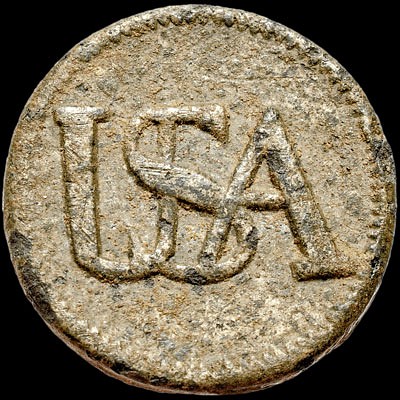Colonial Royal Governor SAMUEL SHUTE 1736 Gov. William Shirley Power of Attorney
Lot 31
Estimate:
$600 - $800
Absentee vs Live bid
Two ways to bid:
- Leave a max absentee bid and the platform will bid on your behalf up to your maximum bid during the live auction.
- Bid live during the auction and your bids will be submitted real-time to the auctioneer.
Bid Increments
| Price | Bid Increment |
|---|---|
| $0 | $10 |
| $200 | $20 |
| $300 | $25 |
| $500 | $50 |
| $1,000 | $100 |
| $2,000 | $200 |
| $3,000 | $250 |
| $5,000 | $500 |
| $10,000 | $1,000 |
| $20,000 | $2,000 |
| $30,000 | $2,500 |
| $50,000 | $5,000 |
| $100,000 | $10,000 |
| $200,000 | $20,000 |
| $300,000 | $25,000 |
| $500,000 | $50,000 |
About Auction
By Early American History Auctions
Aug 21, 2021
Set Reminder
2021-08-21 12:00:00
2021-08-21 12:00:00
America/New_York
Bidsquare
Bidsquare : Autographs - Historic & Political Americana - Militaria & Guns
https://www.bidsquare.com/auctions/early-american-history-auctions/autographs---historic-political-americana---militaria-guns-7321
335 Lots of Rare, Historic Autographs, Americana, Civil War Era, George Washington, Revolutionary War Era, Colonial America, Federal Period, War of 1812, Colonial Currency & more... Early American History Auctions auctions@earlyamerican.com
335 Lots of Rare, Historic Autographs, Americana, Civil War Era, George Washington, Revolutionary War Era, Colonial America, Federal Period, War of 1812, Colonial Currency & more... Early American History Auctions auctions@earlyamerican.com
- Lot Description
Autographs
Governor Samuel Shute of New Hampshire Signed Personal Power of Attorney to Governor William Shirley of Mass.
SAMUEL SHUTE (1662-1742). English military officer and Colonial Royal Governor of the Provinces of Massachusetts and New Hampshire appointed by King George I in 1716.
April 21, 1736-Dated, Large Legal Manuscript Document Signed, "by me Samuel Shute," Chester, New Hampshire, Gov. Samuel Shute, transfer of all lands, Very Fine. This Manuscript Document measures about 12" x 15", 2 pages (1 sheet back to back), New Hampshire. Where John Yeamans of Great Britain, has authorized Governor William Shirley of Massachusetts and several other prominent men to act as powers of attorney for all the lands and tenements he has in America... also Signed by John Yeamans, John Moffat, Joseph Prince and approved by the Court in Massachusetts, Signed by judge Byfield Lydel and Joshua Pierce... then Signed in New Hampshire by John Calfe, John Boydell, John MacMurphy, Samuel Ingalls, Ephraim Hazeltine... and then being "Received" on reverse top boldly Signed in bold deep brown by Ex. Massachusetts Governor "by me Samuel Shute" along with witnesses: Joseph Prince, John Moffant, Daniel Marquand and then Signed at bottom reverse side by: John MacMurphy, John Davison and Samuel Brown. A remarkable large boldly written highly witnessed, legal document written on clean high quality watermarked laid period paper. Fold at center reinforced with archival fiber paper, having several short splits at top. Ex: EAHA Auction November 14, 2000, Lot 210 where it sold over two decades ago for $414.
Samuel Shute (January 12, 1662 - April 15, 1742) was an English military officer and Royal Governor of the provinces of Massachusetts and New Hampshire. After serving in the Nine Years' War and the War of the Spanish Succession, he was appointed by King George I as governor of Massachusetts and New Hampshire in 1716. His tenure was marked by virulent disagreements with the Massachusetts assembly on a variety of issues, and by poorly conducted diplomacy with respect to the Native American Wabanaki Confederacy of northern New England that led to Dummer's War (1722-1725).
Although Shute was partly responsible for the breakdown in negotiations with the Wabanakis, he returned to England in early 1723 to procure resolutions to his ongoing disagreements with the Massachusetts assembly, leaving conduct of the war to Lieutenant Governor William Dummer. His protests resulted in the issuance in 1725 of the Explanatory Charter, essentially confirming his position in the disputes with the assembly. He did not return to New England, being replaced as governor in 1728 by William Burnet, and refused to be considered for reappointment after Burnet's sudden death in 1729.
John MacMurphy was born in Ireland in 1682. The McMurphy's were among the body of Ulster-Scots who migrated to America in the spring of 1718. This migration was led by John's father (some sources say Alexander, or perhaps Alexander James) and at least three sons including John.
John was married in Ireland to Mary Cargill (some say Mary McGurdy) and they had a number of children both before and after immigration. John was a very influential townsman in New Hampshire, holding many offices. He was selectman from 1722, Justice of the Peace, and first Londonderry representative as a member of the General Court.
Esquire John purchased an interest in two mills as well as real estate from Capt. David Cargill in 1732. Both men had large estates. His interest in the corn mill was co-owned with Sam Houston.
John passed away in Portsmouth in 1755 at the age of 73, while attending the General Court there. He had been a member of this court for more than 30 years.
John Calef aka Calfe was born 3 June 1703, Newbury, Essex county, Massachusetts to parents John and Deborah Calef. John married Naomi Elliot, 31 October 1739, Amesbury, Essex, Massachusetts. John Calfe was a mariner and schoolmaster.
- Shipping Info
-
Early American provides in-house worldwide shipping. Please contact us directly if you have questions about your specific shipping requirements.
-
- Buyer's Premium



 EUR
EUR CAD
CAD AUD
AUD GBP
GBP MXN
MXN HKD
HKD CNY
CNY MYR
MYR SEK
SEK SGD
SGD CHF
CHF THB
THB















